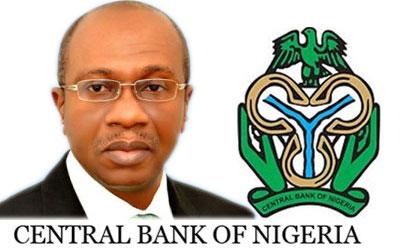
As expectations are high over the continued rising of the Nigerian inflation, driven more by the transmission effect of forex scarcity on prices and high cost of energy, Central Bank, (CBN) has commenced tightening noose on bank’s to reduce the pressures.
Consequently, the regulatory bank has under the new measures barred access to its discount window by banks participating in its foreign exchange auction and treasury bills on the auction date.
The discount window is the CBN lending facility meant to help banks manage their short-term liquidity needs.
The implication, according to analysts is to checkmate lenders disposition to excess liquidity that is fueling inflation, with its negative impact on food and core sub-indices, weaker domestic currency, higher logistics costs and excess liquidity.
But the Bank of England, (BoE) is bolstering support for its beleaguered pension funds to try to underpin government bond markets and create “an orderly end” to its emergency bond-buying intervention.
The bank will also create a new liquidity support facility for banks on the other side of pension funds’ leveraged trades — called the Temporary Expanded Collateral Repo Facility (TECRF).
The BoE took emergency action on September 28 by pledging to buy up to £65 billion of gilts to calm the market after Chancellor Kwasi Kwarteng’s mini-budget spooked investors and sparked a sell-off of British government debt.
Pension funds came under pressure to sell gilts to meet cash calls on leveraged bets amid the dramatic repricing, and could have become stuck in a reinforcing loop without the BoE’s action to backstop the market.
The central bank said Monday it has so far bought around only £5 billion of U.K. government bonds from the £40 billion offered to the market.
The BoE said it is “prepared to deploy this unused capacity” to support the market this week, including up to £10 billion on Monday, ahead of the end of the program on October 14.
The new liquidity support facility, called the Temporary Expanded Collateral Repo Facility (TECRF) is expected to run until November 10 and accept a broader range of collateral, including investment-grade corporate bonds.
The BoE said it will also “stand ready” to support the funds through its regular Indexed Long Term Repo operations by providing additional liquidity to banks and through its new permanent Short Term Repo facility, launched last week.
The yield on a 30-year gilt has been steadily climbing over the last week and hit 4.5 percent this morning. The yield had reached nearly 5 percent before the bank’s initial intervention.
“The CBN discount window includes the standing lending facility (SLF), the Automated repo Conversion (AREPO), the Funding for liquidity facility (FILF), and the Tenored Repurchase Transactions (REPO).
“Thus, all authorised dealers are invited to note the following:
participants with successful bids at the Open Market operations (OMO) auctions are to refrain from accessing the discount window on the auction date. Failure to comply shall result in the reversal of the allotment.
“Government Securities:
Participants with successful bids at the government securities auctions (e.g, Nigerian Treasury Bills (NTBs), Federal Government of Nigeria (FGN bonds, and Sukuk, are not permitted to access the CBN discount window on the settlement date.
“Request for SLF, FfLF and REPO on the settlement date will not be permitted. AREPO and conversion of intraday liquidity facility (IDF) to FfLF on the settlement date, as well as running REPO shall attract a penal charge of five per cent (5.00per cent) flat on the allotment value.
“Foreign Exchange:
Participants with successful foreign exchange bids and transactions are not to access the discount window on both auction and transaction settlement dates. Failure to comply shall result in the cancellation of the bids or transactions,” the CBN said in the circular to banks, Monday.
The CBN said the circular takes immediate effect and all authorised dealers are hereby required to comply accordingly.
The Nation’s statistics agency, (NBS) will release its CPI report for the month of September on October 15.
ALSO READ:Bank Of England In Historic Rate Hike As Long Recession Looms
Some analysts have projected another increase, with Bismarck Rewane of the Financial Derivatives Company putting the headline rising to 20.9%.
According to Rewane, “In the last month, the naira has depreciated by 3.97% in the parallel market. It traded at N704/$ at the beginning of September to N732/$ this week.
However, due to a possible long outside lag (the amount of time it takes for government’s policy to have a noticeable effect on the economy) the impact of the current MPC policy rates hike might not have an immediate effect.
This suggests that inflationary pressures loom, and would still continue in the next quarter, especially with the elevated price of diesel and other sources of energy.“
